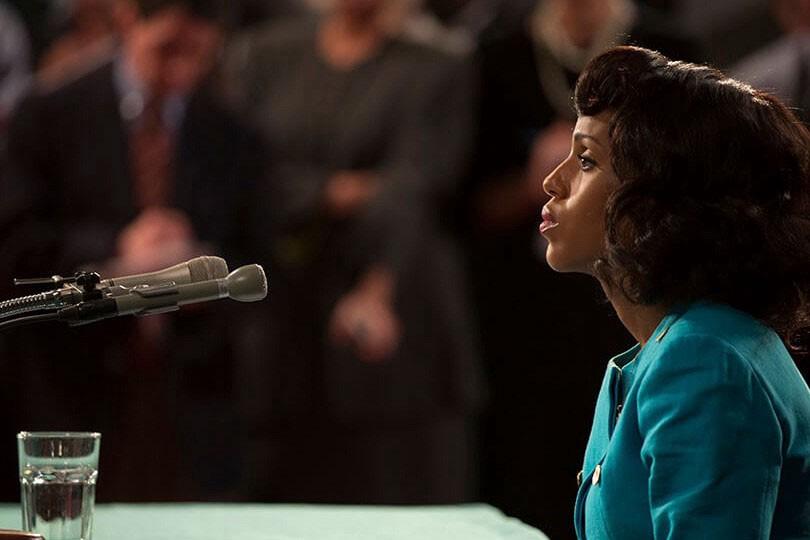
The timing of Confirmation, HBO’s film about Anita Hill’s testimony during the 1991 Clarence Thomas confirmation hearings, is at once fortunate and deeply unlucky. After the massive success of The People v. O.J. Simpson: American Crime Story, we are unprecedentedly primed for a TV movie that asks us to reconsider a racially and sexually charged monocultural event from the ’90s. (That we’re currently witnessing another Supreme Court confirmation process become a total mockery of the democratic process also doesn’t hurt.) But given O.J.’s stellar ensemble cast, glorious musical supervision (I’ll never be able to hear “Who’s That Lady” the same way again), and the emotional wallop of the April 5 finale in particular, Confirmation has some impossibly big shoes to fill. It doesn’t quite succeed. Despite a transfixing performance from Kerry Washington and some promising supporting casting — on paper, “Greg Kinnear as Joe Biden” has as much potential as “John Travolta as Robert Shapiro” — Confirmation feels conventional and slight in comparison to the pulpy, 10-hour sprawl of O.J.
But I still think it’s an important movie to watch and, even better, talk (and tweet and text) about. Confirmation, which premiered on Saturday, continues a conversation that O.J.(and Sarah Paulson’s masterful portrayal of Marcia Clark in particular) started, in which millennial viewers are given a chance to reevaluate, on their own terms, some of the most heavily scapegoated female figures of the ’90s. As a preteen in those days, I absorbed more jokes about Marcia Clark and Anita Hill than actual information, and even decades later, my perceptions of them are clouded by the institutionalized sexism I wasn’t old enough to identify or challenge when I was hearing their names on the nightly news. I know I’m not alone in this: I’ve had this conversation with countless friends in their 20s and early 30s since The People v. O.J. Simpson aired, and I saw the sentiment all over Twitter while searching the #Confirmation hashtag. “I do remember thinking at the time that Anita Hill was super-brave,” the writer Stacia L. Brown tweeted. “That much was obvious at age 11.”
I really thought I was over ’90s nostalgia, but this current strain feels a lot more heartening than, you know, another stylishly disaffected rock band saying that “Nevermind changed our lives, man.” Our cultural elders love to shame millennials for not knowing stuff, and I’m sure that as I type this someone is compiling a blog post about teens at Coachella tweeting variations on “who the f is Axl Rose?” But the great thing about O.J. and Confirmation is that they’re giving younger viewers a space to say, “I never knew the full story, but now I’m old enough to understand it, and wow, it is way more fucked up than I realized.” The internet makes that process of discovery and comprehension visible, and (as the #MarciaClark Tumblr tag can attest) it’s pretty fascinating to behold. Women like Clark and Hill were ridiculed in the ’90s mainstream media for things like their haircuts or their sex lives, but they’re receiving a lot more sympathetic treatment from the next generation, which is much more likely to think of those things as petty and irrelevant. (Further proof: a 2014 article in Slate pointed out that millennials aren’t even that scandalized by the Monica Lewinksy affair.) These pop-cultural revisionist histories don’t exactly erase the scorn these women endured in the past, but at least they make you feel a tad more hopeful about the future. So who will be the next ’90s bogeywoman to get an internet feminist reappraisal? Do I hear the words “American Crime Story: Lorena Bobbitt”? I mean, I’d watch.
This piece originally appeared in the April 18, 2016, edition of the Ringer newsletter.